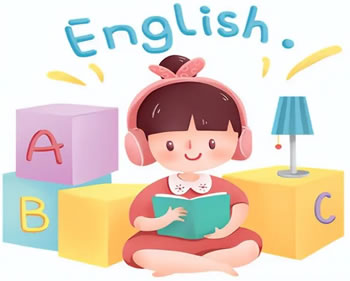人教版初中英语语法

人教版初中英语语法(插图)
鸟欲高飞先振翅,人求上进先读书。学习英语,需要把陌生的单词片语和句型语法不断的熟悉和熟练,使之成为我们的一种习惯。重复重复再重复,熟练熟练再熟练,是学会英语的不二法门。下面是作文地带给大家整理的一些人教版初中的英语语法,希望对大家有所帮助。
人教版初中英语语法:about的用法与语法说明
1. 表示“关于”,注意与介词 on 的区别:
about 指泛泛地或非正式地谈论某事,其谈论的内容也较为普通;而 on 则指比较有系统地或理论性较强地论述某事,其论述的内容较正式或较为严肃。试比较:
(1) a book on rabbits 指的是一本论及兔子的学术著作
(2) a book about rabbits 指的可能是一本供小孩看的关于兔子的故事书
2. 表示“带在身上”,一般指随身带的小物品,有时可与表示类似含义的介词 with
on 换用:
He has a watch about [on, with] him. 他带着表。
3. 用于数字前,表示“大约”:
The computer cost me about 600dollars. 这台电脑大约花了我600美元。
4. 在动词 know, hear, speak 等之后用不用介词 about / of, 含义有差别:
I have heard about him, but I don’t know him. 我听到过一些关于他的事,但不认识他这个人。
I’ve heard of him, but I don’t know about him. 我听说过他,但我不知道有关他的情况。
比较:
know sb 认识某人
know of sb 知道有某人
know aboutsb 知道有关某人的事或情况
hear sb 听到某人 (讲话)
hear of sb听说过某人
hear about sb 听到关于某人的事或情况
5. be about to (do),意为“即将”、“马上”。注意该短语不与具体的时间状语 (如:
soon, tomorrow, immediately 等)连用:
正:He is about to return to his homeland. 他即将回乡。
误:He is about to return to his homeland tomorrow.
(1) 该短语可与并列连词when (这时)连用:
I was (just) about to go to bed when the telephone rang. 我正要上床睡觉,这时突然电话铃响了起来。
(2) be about 之后可接动名词 (但 be about to 之后不能接动名词):
I was (just) about going to bed when the telephone rang. 我正要上床睡觉,这时突然电话铃响了起来。
6. be about 在干…,忙于…:
What are you about? 你在干什么?
if与whether的区别
1. 引导主语从句并在句首时不用if。如:
Whether we go there is not decided. 我们是否去那里还没决定。
2. 引导表语从句时不用if。如:
The question is whether we can get there on time. 问题是我们能否按时到达那里。
3. 引导同位语从句时不用if。如:
He asked me the question whether the work was worth doing. 他问我这个问题,那项工作是否值得做。
4. 在介词后引导宾语从句不用if。如:
I’m thinking about whether we’ll have a meeting. 我在考虑我们是否要开个会。
5. 直接与not连用时不用if。如:
I don’t know whether or not you will go. 我不知道你是否去。
6. 宾语从句置于句首时不用if。如:
Whether you have met George before, I can’t remember. 我不记得你以前是否见过乔治。
7. 在discuss等之后时不用if。如:
We’re discussing whether we’ll go on a picnic. 我们在讨论是否要去野餐。
8. 当用if会引起歧义时不用if。如:
Please let me know whether you are busy. 请告诉我你是否忙。(若用if,还可理解为“如果你很忙,你就告诉我。”
9. 在动词不定式前用whether不用if。如:
He doesn’t know whether to go or not. 他不知道是否去。
10. 宾语从句是否定式时不用whether。如:
She asked me if Tom didn’t come. 她问我Tom是不是没有来。
人教版初中必备英语语法
引导宾语从句的that在下列情况下一般不省略:
1. 宾语从句前有插入语。如:
We hope, on the contrary, that he will stay at home with us. 恰恰相反,我们希望他和我们呆在家里。
2. 有间接宾语时。如:
He told me that he was leaving for Japan. 他告诉我他要去日本。
3. that在与之并列的另一个宾语从句之后。如:
He said (that) the book was very interesting and that(不省略) all the children like to read it.他说那本书很有趣,所有小孩都喜欢读。
4. 在“it(形式宾语)+补语”之后时。如:
I think it necessary that he should stay here. 我们认为他有必要留在这里。
5. that从句单独回答问题时。如:
—What did he hear? 他听说了什么事?
—That Kate had passed the exam. (他听说)凯特考试及格了。
6. 在except等介词后。如:
He has no special fault except that he smokes too much.他除了抽烟太多之外,没有什么特别的毛病。
7. 位于句首时。如:
That our team will win, I believe. 我相信我们队会赢。
8. 在较为正式或不常用的动词(如reply, object)后。如:
He replied that he disagreed. 他回答说他不同意。
编辑:Liuxuepaper.Com
作文地带知识拓展:
英语(English)属于印欧语系日耳曼语族西日耳曼语支,最早被中世纪的英国使用,并因其广阔的殖民地而成为世界使用面积最广的语言。英国人的祖先盎格鲁部落是后来迁移到大不列颠岛地区的日耳曼部落之一,称为英格兰。这两个名字都来自波罗地海半岛的Anglia。该语言与弗里斯兰语和下撒克森语密切相关,其词汇受到其他日耳曼语族语言的影响,尤其是北欧语(北日耳曼语),并在很大程度上由拉丁文和法文撰写。
英语的英文释义:
English 名词 uk /ˈɪŋ.ɡlɪʃ/ us /ˈɪŋ.ɡlɪʃ/
the language that is spoken in the UK, the US, and in many other countries
英语
American/British English
美式/英式英语
Do you speak English?
你会说英语吗?
English 形容词 adjective uk /ˈɪŋ.ɡlɪʃ/ us /ˈɪŋ.ɡlɪʃ/
in or relating to the English language
英语的
an English teacher
英语老师
relating to or from England
英格兰的;英国的
English films/food/people
英国电影/食品/人
English law
英格兰法律
